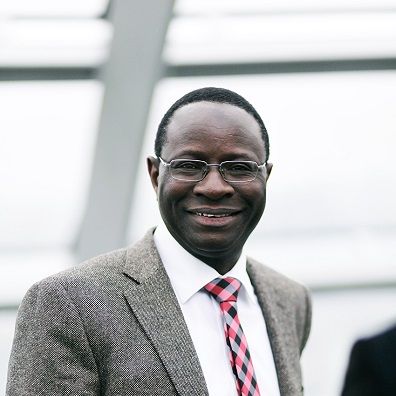Dr. Karamba Diaby
Germany
Member of the German Parliament and integration officer of SPD parliamentary group
1986-1991, Germany

Dr. Karamba Diaby.jpg
© Ute Langkafel
Social cohesion and educational opportunities have a lasting impact on a person’s life – as Dr Karamba Diaby knows from personal experience. An orphan, he was raised by his sister in Senegal and was only able to begin a teaching degree in biology and geology at the University of Dakar thanks to the support of his brother. “I was very happy when I received a scholarship from the former GDR through the International Union of Students in Prague, as I was unable to continue my studies in Dakar for financial reasons”, recalls Diaby. “The organisation found placements for young people from all over the world in the former Eastern Bloc, and I ended up in Halle.”
Without the DAAD scholarship I would have had to leave Germany and probably would never have become a politician in the field of education. – Dr. Karamba Diaby
He studied chemistry there at Martin Luther University Halle-Wittenberg, but the question of funding arose once again when the Berlin Wall came down in 1989. “The country that had granted me a scholarship was gradually disappearing, and we foreign students did not know whether we would be allowed to stay without a scholarship.“ After reunification in 1990, the DAAD took over the funding, and Diaby was able to complete his degree. “Without the DAAD scholarship I probably would not be where I am today, and I mean that literally geographically. I have been living in Halle for over 30 years. I would have had to leave Germany and probably would never have become a politician in the field of education. It is a nice twist of fate that today I am the rapporteur for the DAAD at the German Parliament.”
After graduating, Diaby did a PhD in geo-ecology at Martin Luther University and then worked for various non-profit organisations in the area of education, youth policy, diversity and human rights. “I was chairman of the Federal Migration and Integration Council, and previously worked as an intercultural coach for organisations like the Eine-Welt-Haus Halle e.V.”, explains Diaby. “In this capacity I would visit schools to educate students about racism, discrimination and sustainability. That was a very intense period for me, as I met a lot of people and learnt a great deal from them.”
He joined the Social Democratic Party of Germany (SPD) in 2008. “There were many problems that neededF to be resolved, such as the distribution of wealth, poverty and unequal access to education”, he says. “Though many actors in society are involved in politics, the political parties themselves have a central role to play in the political system.” Diaby was elected to Halle City Council in 2009, where he remained until 2015. In addition, he worked as section head at the Saxony-Anhalt State Ministry of Labour and Social Affairs from 2011 to 2013. In the summer of 2013 he entered the election campaign as an SPD candidate in Halle – and subsequently became the first black African-born member of the German Parliament. Since being re-elected in 2017, he has been a member of the Education Committee of the German Parliament. To this day, Diaby remains committed to intercultural understanding, solidarity in our everyday lives, education and integration. In this context he is seeing growing tensions in Germany. “This is why I and many other colleagues are fighting for a law to promote democracy that will then contribute to social cohesion”, says Karamba Diaby.
Status: 15.11.2019